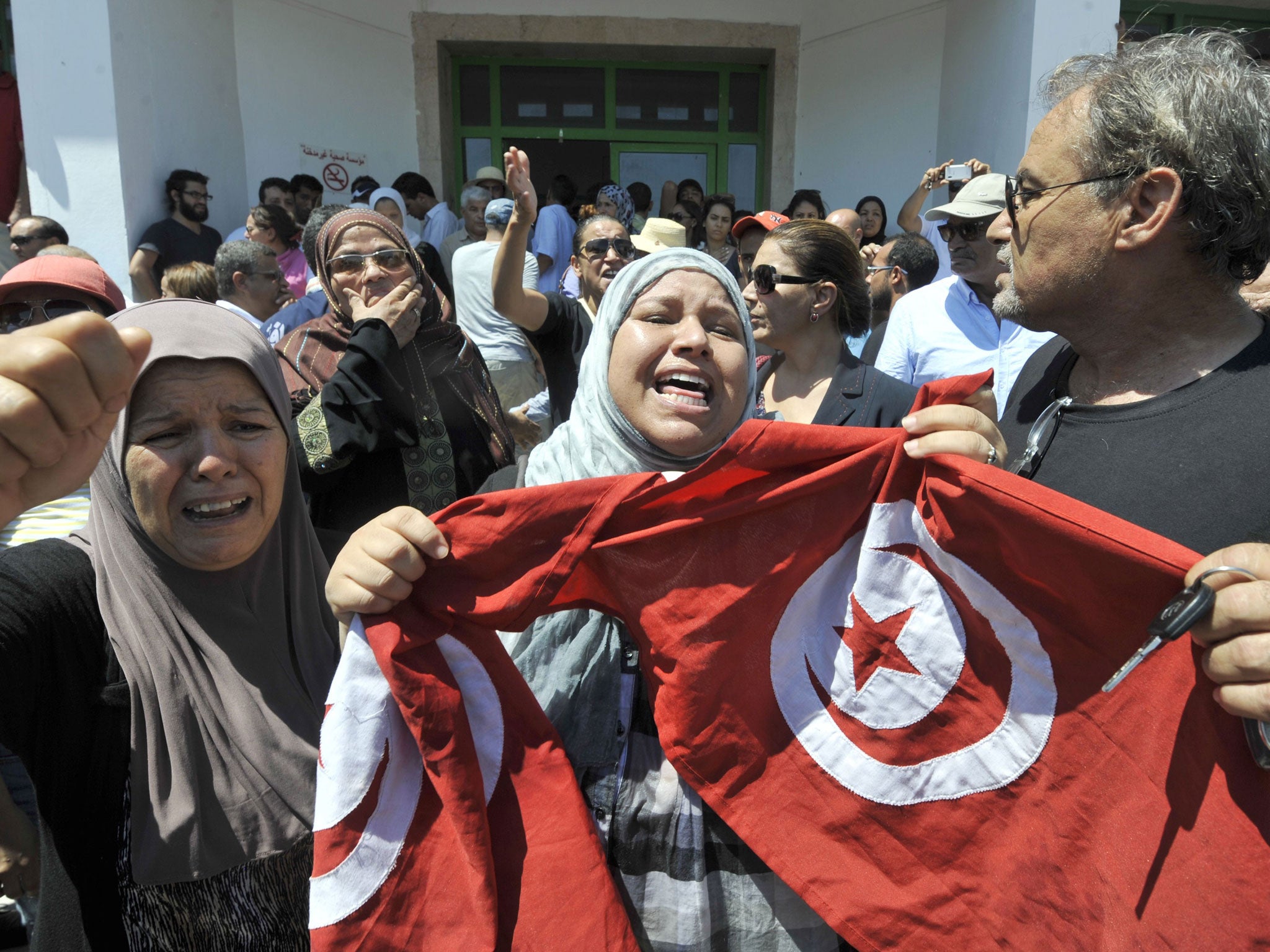Tunisia erupts in renewed protests after opposition leader Mohamed Brahmi is killed
Killing could derail fragile democracy in birthplace of the Arab Spring

Your support helps us to tell the story
From reproductive rights to climate change to Big Tech, The Independent is on the ground when the story is developing. Whether it's investigating the financials of Elon Musk's pro-Trump PAC or producing our latest documentary, 'The A Word', which shines a light on the American women fighting for reproductive rights, we know how important it is to parse out the facts from the messaging.
At such a critical moment in US history, we need reporters on the ground. Your donation allows us to keep sending journalists to speak to both sides of the story.
The Independent is trusted by Americans across the entire political spectrum. And unlike many other quality news outlets, we choose not to lock Americans out of our reporting and analysis with paywalls. We believe quality journalism should be available to everyone, paid for by those who can afford it.
Your support makes all the difference.Thousands have taken to the streets across Tunisia to protest the killing of opposition politician Mohamed Brahmi in the capital Tunis – a development that threatens to derail a transition to democracy in the birthplace of the Arab Spring.
Mr Brahmi, the leader of the opposition Movement of the People party, was gunned down outside his home in front of his wife and youngest daughter. It was the second assassination of an opposition politician this year, coming just five months after the killing of Chokri Belaid, a prominent secular MP.
Mr Brahmi was a member of the National Constituent Assembly, which is finalising the drafting of the new constitution for Tunisia. His party is a member of the left-leaning Popular front coalition, to which Mr Belaid also belonged.
Mr Belaid’s death, the first of its kind in Tunisia, shocked the country and led to widespread protests. His funeral was attended by tens of thousands of people. Mr Brahmi was a vocal critic of the ruling Ennahda party, a moderate Islamist party which became part of the government following the overthrow of Tunisia’s former leader Zine al-Abidine Ben Ali in 2011.
Divisions between Islamists and their secular opponents have deepened since the popular uprising against Ben Ali, which unleashed unrest across the Arab world, unseating rulers in Egypt, Libya and Yemen, and leading to a civil war in Syria.
The opposition has accused the government of not doing enough to crack down on radical Islamists. Among those who took to the streets in central Tunis to protest today, many were pointing fingers at the Ennahda party, calling its members “terrorists” and “vampires”.
At the Ministry of Interior, demonstrators shouted slogans against Rached Ghannouchi, leader of Tunisia's ruling party Ennahda. “Ghannouchi is a murderer”, the crowd shouted.
Similar demonstrations erupted in the southern town of Sidi Bouzid, where protesters set fire to two local Ennahda party offices.
Mr Ghannouchi expressed his sorrow at the killing via his party’s Facebook page this afternoon. “We heard, with immense sadness and shock, the news of the assassination of politician and member of the national constituent assembly Mohamed Brahmi, today. We condemn this cowardly and despicable crime. We pray for the soul of martyr Mohamed Brahmi and present our sincere condolences to his family, praying that God grants them patience,” he wrote. His condemnation was echoed by other members of his party, who called the killing an “attack on democracy”.
“All that I can tell you is that it is the assassination of Tunisia, it’s the assassination of legality, it’s the assassination of the democratic process, it’s the assassination of the transition,” said Hela Hammi, a member of the Tunisian Constituent Assembly’s bureau and a member of the Ennahda party.
Tunisia’s political transition has been relatively peaceful, with the moderate Islamist Ennahda party sharing power with smaller secular parties. But the government has struggled to revive a stuttering economy and has come under fire from secularists who accuse it of failing to curb the activities of radical Salafi Islamists.
The government blamed Mr Belaid’s assassination on Salafi militants.
Join our commenting forum
Join thought-provoking conversations, follow other Independent readers and see their replies
Comments